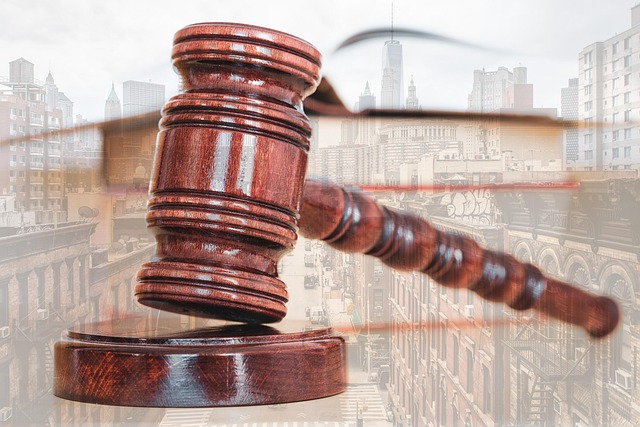Securities Class Actions are collective legal efforts to hold companies accountable for fraudulent securities activities, protecting investor rights and market integrity. The Importance of Due Process in Court is vital for fairness, transparency, and trust in the financial system. This procedural right ensures all parties are treated equitably, facilitates evidence presentation, and has achieved favorable verdicts against misconduct. A successful class action involves careful investigation, proper notification to potential members, strategic planning, and mastery of both substantive and procedural aspects. The outcome impacts corporations and investors, shaping legal strategies and fostering market transparency.
Securities class actions play a pivotal role in protecting investor rights, ensuring fairness, and maintaining market integrity. This comprehensive guide delves into the intricate world of securities litigation, focusing on the significance of due process throughout the legal journey. From understanding the framework to key initiation steps and strategic arguments, we explore what makes a class action successful or challenging. Additionally, we analyze post-trial implications and future prospects, emphasizing the importance of due process in shaping the court’s decisions.
- Understanding Securities Class Actions: A Comprehensive Overview
- The Role of Due Process in Protecting Investor Rights
- Key Steps in Initiating a Successful Class Action Suit
- Legal Arguments and Strategies for Win-Loss Scenarios
- Impact and Implications: Post-Trial Landscape and Future Prospects
Understanding Securities Class Actions: A Comprehensive Overview

Securities Class Actions involve a group of investors joining forces to hold accountable companies or individuals who have engaged in fraudulent or unlawful activities related to securities. This collective legal approach, often referred to as a class action lawsuit, is a significant tool in ensuring market integrity and protecting investor rights. When an investor believes they have been wronged by a company’s false or misleading disclosures, they can initiate a class action, providing a platform for their voice to be heard along with other affected parties.
The importance of due process in court cannot be overstated in these cases. It ensures that all stakeholders are treated fairly and that the legal process is transparent. This is crucial for maintaining trust within the financial system, fostering a sense of justice, and encouraging ethical corporate behavior. By allowing both corporate and individual clients to seek redress through class actions, the legal framework enables the recovery of losses and achieving extraordinary results in cases of widespread misconduct, benefiting not just the immediate victims but also the philanthropic and political communities at large.
The Role of Due Process in Protecting Investor Rights

The importance of due process in court cannot be overstated when it comes to protecting investor rights in securities class actions. It serves as a cornerstone, ensuring fairness and transparency throughout the legal process. This meticulous procedure guarantees that all involved parties are treated equitably, with every step taken to safeguard the rights of investors who may have suffered financial losses due to corporate misconduct.
Due process provides a structured framework for presenting evidence, examining witnesses, and ensuring robust argumentation from both plaintiffs and defendants. This rigorous approach allows for an unprecedented track record of winning challenging defense verdicts across the country. By upholding these standards, the legal system fosters trust, enabling investors to have confidence in the outcome and the overall integrity of the process.
Key Steps in Initiating a Successful Class Action Suit

Initiating a successful securities class action requires careful navigation through complex legal procedures. The first step is to ensure a strong case merit by identifying violations of federal and state securities laws, such as fraud or misrepresentation in financial disclosures. This involves thorough investigation into company activities, often uncovering white-collar and economic crimes, which are essential for establishing liability.
Once a viable case is identified, the next crucial step is adherence to due process in court. This includes proper notification to potential class members, allowing them to opt out or participate. An unprecedented track record of achieving extraordinary results is built through meticulous planning, strategic legal arguments, and a deep understanding of both the law and the specific industry dynamics at play.
Legal Arguments and Strategies for Win-Loss Scenarios

In securities class actions, understanding legal arguments and crafting strategic responses are paramount to navigating win-loss scenarios. A key aspect that cannot be overlooked is the importance of due process in court. This procedural safeguard ensures fairness by providing all parties with a full and fair opportunity to present their cases. In essence, it allows for a thorough examination of the facts and law applicable to the case.
For plaintiffs seeking achieving extraordinary results across the country, a robust legal strategy involves meticulous preparation throughout all stages of the investigative and enforcement process. This includes gathering compelling evidence, identifying key legal precedents, and constructing persuasive arguments that resonate with judges and juries. In contrast, for defendants, the focus shifts to challenging the merits of the claim, exposing procedural flaws, and raising defenses based on a nuanced interpretation of the law. Ultimately, successful advocacy in these complex cases demands a deep understanding of both the substance and procedure governing securities litigation.
Impact and Implications: Post-Trial Landscape and Future Prospects

The outcome of securities class actions has significant implications for both corporations and individual investors. Post-trial, the landscape often shapes future legal strategies, fostering a more robust and transparent market environment. As these cases navigate through appeals and settlements, they set precedents that influence how similar disputes are handled in the future. This process is pivotal in maintaining fairness and ensuring due process in court, which is of utmost importance for preserving investor confidence.
The success or failure of class action lawsuits can dramatically affect corporate strategies, leading to enhanced regulatory compliance and improved corporate governance. For general criminal defense attorneys, these cases offer valuable insights into navigating complex financial litigation. Winning challenging defense verdicts not only strengthens their reputation but also contributes to the development of legal principles that protect the rights of both businesses and consumers in the dynamic securities market.
Securities class actions play a pivotal role in upholding investor rights and ensuring corporate accountability. By understanding the intricate processes outlined in this article, from recognizing potential violations to navigating legal arguments, investors can effectively pursue justice. The importance of due process in court cannot be overstated; it safeguards fairness and protects against arbitrary decisions. With the right strategies in place, successful class actions can lead to substantial remedies and meaningful changes in corporate governance, ultimately fostering a more transparent and equitable financial landscape.






